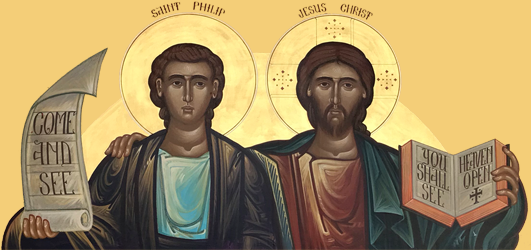Exodus 3:14
“Then God said to Moses, ‘I AM the Existing One.’ He also said, ‘Thus you shall say to the children of Israel, ‘The Existing One sent me to you’.” (OSB)
As we begin the Book of Exodus, we find Israel flourishing in Egypt (Exod 1:7)—they are fulfilling the “creation mandate” (Gen 1:26-28), and the Abrahamic Promise (Gen 22:17), to be fruitful and multiply, and to fill the land. Then, however, “there arose a new king over Egypt who knew not Joseph” (Exod 1:8). As we are instructed both by Joseph’s articulation of divine Providence (Gen 50:19-20) and by God’s promises to Abraham that he would inherit the Land of Canaan (Gen 12:7), we realize that the ascendance of this “new king” is no accident, for Egypt cannot—must not—be Israel’s permanent dwelling.
While it is a “hard word,” we come to understand that God’s plan all along has, paradoxically, been to lead His people into slavery so that “Out of Egypt” He may call His “firstborn Son” (Exod 4:22; Hos 11:1; Matt 2:15). Indeed, as early as Genesis 15, when God cuts a covenant with Abram, God foretells Israel’s sojourn in Egyptian bondage (Gen 15:13-14).
In Matthew 2:15, the Evangelist Matthew helps us to see that Christ’s own life is the ultimate truth of history, that all of salvation history is providentially “Christ-shaped.” The drama of Joseph’s life, of Israel’s descent into Egypt, Pharaoh’s slaughter of the infants, and Israel’s being “called out” with signs and wonders, plagues and the Red Sea crossing, are not “predictions” so much as history participating in and being conformed to the pattern of the “true history” that is Christ’s own life, and thus our life in Christ (1 Cor 10:11; Rom 15:4).
Still we are pressed with the question, Why would God work in this way? Why would He allow His people to experience such great suffering? The answer—or at least, the beginning of the answer—is in the “burning bush” of Exodus 3. The God of Abraham, Isaac, and Jacob is not an abstract idea, concept, state, or impersonal force. God is a Person who wants His people to know, worship, and love Him. When we overlay the story of the Exodus with the story of Isaiah’s suffering Servant (Isa 53), we will find that God reveals Himself both in His mighty acts of deliverance and in His voluntary entering into the suffering of His own people. In a way, as Ephrem the Syrian suggests, Moses is being called in Exodus 3 to be an Icon of God’s own suffering and purifying love in and with Israel:
Moses, [the burning bush] is a sign to you: as you saw God dwelling in the midst of fire, by fire you must serve the God who dwells in the fire. (ACC Exodus, p. 12)
How much more with Christ who served in the Father’s house as both Builder and Son (cf. Heb 3:1-6)!
What better way could there be for the utterly transcendent God—the God Who is Being itself, “the Existing One,” and indeed Who is “Super-Substantial,” even Beyond Being (Dionysius the Areopagite)—to reveal His true nature to humanity and to all creation than in this economy of salvation, where God keeps His promises, where God forgives and shows mercy, where God judges sin and evil, where God takes on the burdens and suffering of His people as His own.
This God who is eternal Life and Being identifies Himself with the Patriarchs, setting the identity of the “true Israel” in the never-ending Day of the Kingdom (Matt 22:32), giving us a sure hope and anchor for our souls as we navigate the sea of this life.
~ By Reader Justin Gohl

